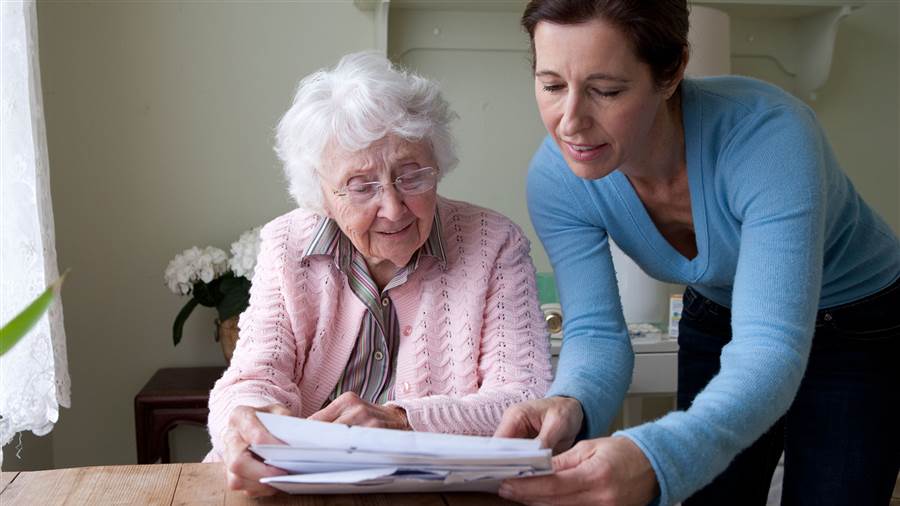Watching your parents or older family members age and become less self-sufficient is one of the most difficult aspects of being an adult. No matter how much you mentally prepare for the role reversal of providing care for them in their elder years, no one is ready for their loved one to be diagnosed with dementia. The initial diagnosis can feel devastating, but there is a myriad of ways to proactively steer towards the best care for your loved ones. No matter how overwhelmed you feel by caring for your parent, you are not alone. There are many ways you can learn, plan and adapt after the diagnosis. Consider some of these options as you plan ahead for your parent’s Alzheimer’s care:
Learn About Alzheimer’s and Where Your Parent Stands
Most people in their early adulthood or midlife do not know about the stages, caregiving issues and other facets of Alzheimer’s because they haven’t experienced it firsthand. Your parent may have seen their friend or loved one experience the disease, but that does not mean that they have all of the information they will need to navigate their personal journey.
Take some time to read as much as you can and talk to your parent’s doctor about where they are in the progression of the disease and what steps you should take immediately and in the near future to help them. There are different treatments and lifestyle practices recommended for people based on a variety of indicators that can lighten the load or even forestall different aspects of dementia. Ask questions and learn as much as you can to make the most informed decisions for your parent’s care.
Set Aside Time to Process Your Emotions
The initial moments after receiving the diagnosis are overwhelming, and the coming months and years can take many twists and turns as your loved one’s illness evolves. You will need to make room in your life to adapt to the ever-changing nature of their illness, which may make you feel complex emotions ranging from mourning and denial to grief and fear.
You are beginning a battle that is not defined on any known terms, and it is going to require an unknown amount of time and effort from both caregivers and your parent facing the illness. The most important first step is to allow everyone to feel and express their feelings, so you can process them in a healthy manner. The road ahead is going to be complicated and difficult at times, and the best way to prepare for such an emotional roller coaster is to build a strong foundation and understand that feeling hurt, lost, or overwhelmed is normal.
Encourage Your Parent to Share the News When Appropriate
Many people from your parents’ generation grew up in a time when sharing emotions publicly or admitting to experiencing mental health issues was a serious social taboo. Encouraging your parent to share their diagnosis may be a difficult conversation, but it is important for them to at least be open with their closest friends. Others can help provide support during the process and understand why they may experience different symptoms in their day-to-day interactions. Be sure your parent knows Alzheimer’s is a physical disease no different than heart disease or any other ailment. They should not feel ashamed of their diagnosis. If it becomes too difficult to discuss the diagnosis and symptoms with your loved one, consider asking a neutral third party like their doctor to discuss it with them.
Talk to Professionals About Care Options

A professional with experience navigating the many different treatment options can help you avoid the disorienting and isolating journey into figuring things out yourself. Even if you or your loved one have some experience with dementia, do not skip this step.
Use professionals to help you find the best local resources, understand how your parent’s illness might interact with other health issues, safety-proof their home, look into buying a more accessible car. Conversations about end of life care, money, and legal decisions are never easy, but it is of the utmost importance to have them while your parent is still able to actively express their wants and needs.
Form A Support Network and Actively Communicate

Find someone outside of the family for your parent to talk to early in the process: a therapist, counselor, mentor or friend can help them vent frustrations and remind them that their feelings are valid. It is also important for you to do the same so you are not paralyzed by your parent’s needs. There are support groups for people with dementia and their family members which can be a fantastic resource coping with different situations and fighting feelings of isolation or loss.









